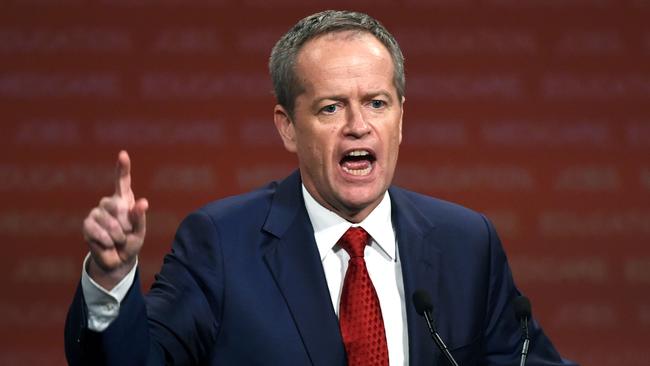Unions flex their industrial muscle in countdown to likely ALP victory
There hasn’t been enough scrutiny of the CFMMEU nor the likely power it will wield when Bill Shorten becomes PM.

Unions are starting to flex their industrial muscle as we countdown to a likely Labor victory in May. The newly merged CFMMEU in particular is throwing its weight around, in the full knowledge it has the ear of PM-in-waiting Bill Shorten.
There hasn’t been nearly enough scrutiny of the actions of this militant super union, nor the likely increased power and influence it will wield when Shorten becomes PM.
We have seen little by way of condemnation by Shorten of CFMMEU actions which past Labor leaders would have been quick to distance themselves from.
Ever since John Howard went too far with Work Choices legislation, losing the 2007 election and his own seat in the process, Liberals have timidly vacated the industrial relations reform space.
Work Choices was repealed when Kevin Rudd won office, replaced by the Fair Work Act. And that Labor legislation went further than simply removing the excesses in employers favour Howard introduced. It wound back 1997 reforms, and even reforms Paul Keating introduced in the early 1990s.
Minor tinkering aside, the Coalition government has done little in the IR space since Howard’s time, yet unions now want major modifications to the Fair Work laws — laws Labor introduced in the first place as an over reach in response to Howard’s changes.
But it doesn’t stop there. Unions such as the CFMMEU are now being deliberately obstructionist to businesses with the aim of preserving not just employee rights but union power too. Ongoing industrial action at the Port Kembla Coal Terminal is just one of many such examples.
The CFMMEU has rejected an offer from the PKCT which preserves what most Australians would regard as overly generous employee rights, favouring industrial action instead. It is banking on the business (which is only a cost recovery operation anyway) capitulating in the full knowledge that the CFMMEU has the ear of the likely new government.
In the current global economic environment this approach is a genuine threat to businesses here in Australia. One of the great successes of the Hawke government was the Accords, which saw government find a way to negotiate outcomes between businesses and unions to mutual benefit.
Today’s landscape looks very different, with militant unions no longer on the outer with the parliamentary Labor Party. Rather they are firm allies of the opposition leader and have been important in protecting his leadership from the likes of Anthony Albanese, who over the years has been highly critical of the conduct of sections of the CFMMEU.
Peter van Onselen is a professor of politics at the University of Western Australia and Griffith University.



